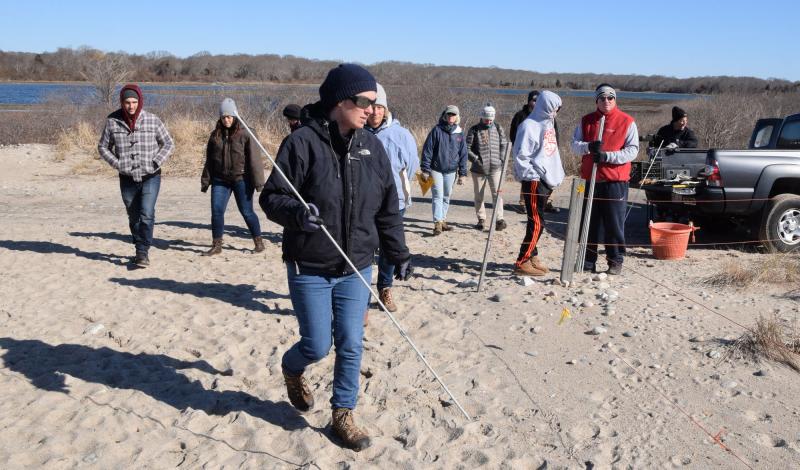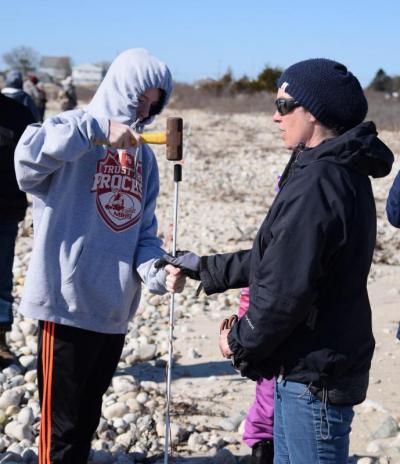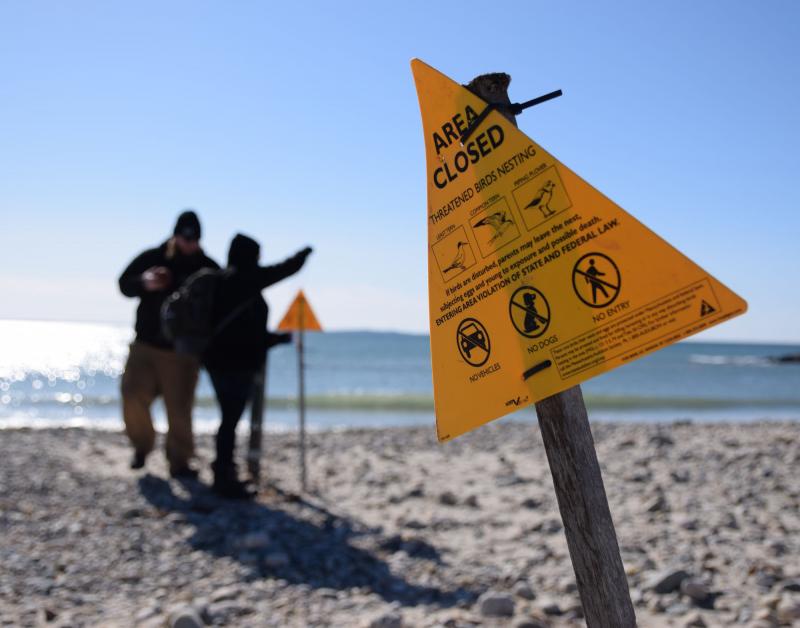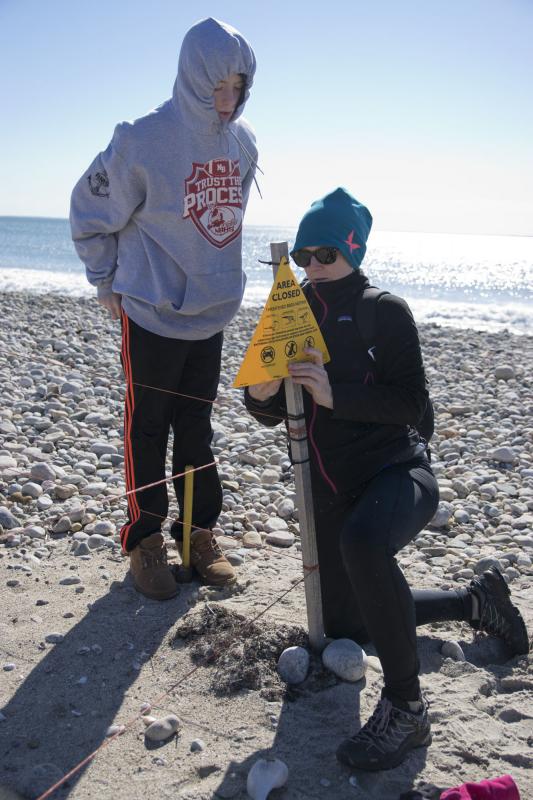Volunteers pitch in to help protect piping plovers
Anyone who's been to a beach has probably seen the signs and roped off areas warning of off-limit nesting areas.
It’s a valuable tool used to protect the region’s shorebird populations, and on March 31, Mass Audubon staff invited volunteers to help mark nesting spots at its Allens Pond Wildlife Sanctuary property during a special coastal waterbird work day.
“It’s an annual volunteer event, and we had the good weather today,” said Mass Audubon’s Lauren Miller-Donnelly, who was impressed with the turnout this year.
The largest contingent of protected shorebirds that visit Allens Pond are piping plovers. The Atlantic piping plover is the least endangered of the three species in the United States, with an estimated 7,000 birds.
Special precautions are needed ensure the species’ survival during the critical nesting season, which begins in early spring.
Mass Audubon’s Coastal Waterbird Program works on both its own properties and with private landowners to erect special fencing and signs where it’s believed piping plovers will take up residence.
“Every year we assess available habitats and look at historic habitats,” Miller-Donnelly said, adding that the sanctuary is usually home to 20 pairs of piping plovers.
Piping plovers have delicate and precise mating rituals. Males will search specific areas of sandy beaches for nesting spots in the early spring, and will often make several nests — called "scrapes" — in the sand until the female is satisfied and lays her eggs. The birds are territorial, and use flying and land marking to ward off competitors.
The biggest defense is roping off nesting areas to keep humans at bay.
Jocelyn Rua specializes in coastal shorebird management, and has been working for Mass Audubon for four years. She showed volunteers how to properly connect rope to each post to secure the site.
While attending Bristol Community College, she enrolled in a bird biology class, where she discovered her love of birds.
“I was new to birds, and that class was super interesting,” she said, adding that she interned and later joined Mass Audubon’s staff after college.
Deirdre Tarpey, Allens Pond’s newly hired office manager, brought her son Matthew and husband Tom to help out. Nowhere near a seasoned birder herself, she enjoyed learning all she can about coastal birds while Tom handled most most of the mallet work.
“Lauren is so knowledgeable,” Tarpey said.

















